Teaching Artist Institute (TAI) Founder Kim Poole Meets with Vatican Officials to AdvanceReparatory Justice, Land Repatriation, and Cultural Restitution.
Rome, Italy – January 16, 2025 – In a groundbreaking discussion at the Vatican today, Kim Poole, Founder of the Teaching Artist Institute (TAI), met with Bishop Paul Tighe, Secretary of the Dicastery for Culture and Education, to explore the Vatican’s role in reparatory justice, cultural restitution, and narrative restoration for African-descendant communities.
The meeting was arranged by Emmanuel Gbatar, an interfaith and intercultural communication expert and master’s student in Interreligious and Intercultural Dialogue at the Faculty of Missiology, Pontifical Urbaniana University, Rome. His efforts to foster global faith-based dialogue played a key role in facilitating this historic engagement.
The discussion built on the foundation laid by the Global Circle for Reparations and Healing, which, on July 18, 2022, initiated a formal dialogue with the Vatican. During that meeting, a delegation led by Kamm Howard, Director of Reparations United, delivered the Reparations Presentment to the Holy See- a comprehensive assessment of the Church’s historical involvement in the Transatlantic Slave Trade, the continued harmful impact of those actions, and concrete reparative measures to redress the offenses and colossal harms that have resulted.
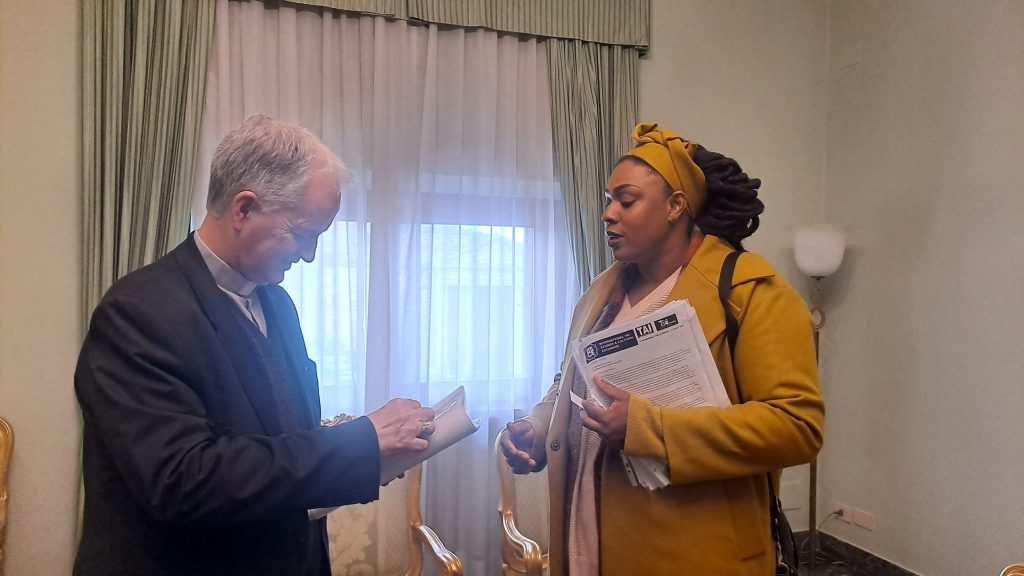
Howard sees TAI’s efforts as partnering with the Global Circle’s demands, and as such, will play a pivotal role in the continued advocacy and enforcement of faith-based reparations initiatives.
During the meeting, Kim Poole underscored the urgent need for the Catholic Church to move beyond symbolic gestures and take concrete actions toward healing the historical wounds inflicted on African people.The discussion centered on artifact repatriation, land justice, and narrative restoration.
Cultural restitution was a primary focus, with Poole advocating for the return of African artifacts held in Vatican collections, ensuring they are interpreted and preserved through an African lens. On land repatriation and stewardship, she referenced the Nuns & Nones Land Justice Project as a model for repurposing Church-owned land to benefit African-descendant communities.
She also highlighted the importance of storytelling in reparatory justice, emphasizing that storytelling is the most vital art form in shaping identity, sovereignty, and historical consciousness. In his role as Secretary of the Dicastery of Culture and Education, Ms Poole positioned Bishop Tighe as a modern-day griot, calling on the Vatican to support African-led storytelling initiatives that reclaim and honor African narratives.
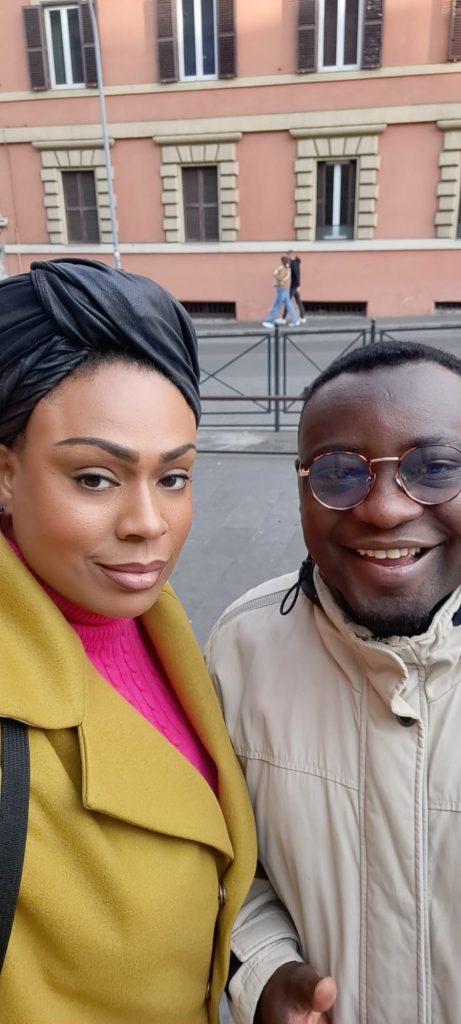
Poole also acknowledged the Catholic Church’s documented role in shaping anti-African narratives as also delineated in the Reparations Presentment. She referenced the Papal Bulls Dum Diversas and Inter Caetera, which authorized European nations to conquer, enslave, and dispossess non-Christian lands, laying the foundation for the transatlantic slave trade, and later colonialism – reiterating that these official Church edits caused lasting devastation for African and Indigenous peoples.
She also highlighted the Jesuit slave trade and the Catholic Church’s financial benefit from the enslavement of Africans, including the 1838 sale of 272 enslaved people by Jesuits in Maryland to pay off Georgetown University’s debts. Additionally, she addressed the role of Catholic missionary schools in Africa and the Americas, which erased African and Indigenous cultural identities, promoted Eurocentric superiority, and amassed land and wealth in colonized territories.
Given this history, Poole urged the Vatican to take the bold steps toward strategic atonement enumerated in the Reparations Presentment – particularly a “Commitment to Global Reparations and Healing Organizations.” and a “Generous Monetary Commitment to Reparations and Healing.” Ways include establishing a Vatican Land Justice Task Force to assess land repatriation opportunities, creating a Global African Griot Fellowship to fund African artists, storytellers, and historians, and launching a Vatican Reparations & Healing Fund to support African-led cultural and economic renewal initiatives. She also called for formal reparatory justice policies within the Church, financial investments in African-descendant cultural and economic development, and international recognition of faith-based responsibility in colonial-era crimes.
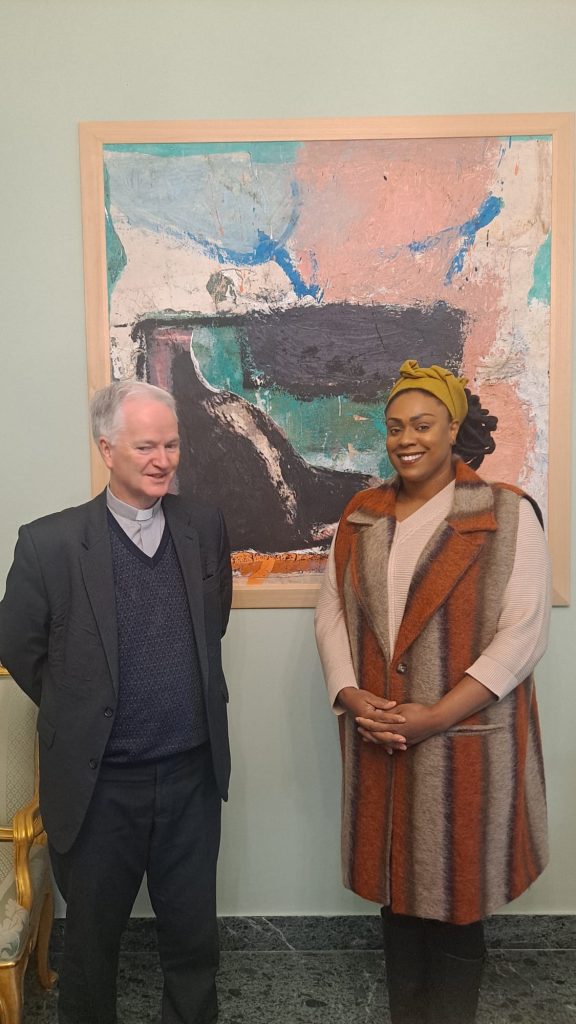
Emmanuel Gbatar emphasized the power of interfaith and intercultural dialogue in addressing historical injustices. His expertise at the Pontifical Urbaniana University bridges faith traditions to advance global healing, positioning this dialogue as a model for future Vatican-African collaborations.
The next steps in this engagement include continued dialogue with Vatican officials to formalize commitments toward land justice, cultural restitution, and narrative restoration. TAI will also deepen collaboration with Reparations Unitedand the Global Circle for Reparations and Healing to integrate faith-based reparations into global advocacy efforts.
https://web.facebook.com/reel/803339048612212
This vision also includesorganizing a Vatican-African Reparations Summit, bringing together faith leaders, griots, and reparations advocates to advance collaborative justice initiatives.
During the discussion, Bishop Paul Tighe shared insights into the recent restructuring of his department, now the Dicastery for Culture and Education. He explained that the Vatican’s renewed approach to culture and education aims to better engage with contemporary global issues, including historical justice and intercultural dialogue. This shift, he noted, presents new opportunities for meaningful collaborations between the Vatican and African-descendant communities on matters of cultural preservation, restitution, and education.
Acknowledging these ongoing structural changes, Tighe suggested that Poole and her team see him more as a guide in navigating Vatican engagement on these issues. While the Dicastery for Culture and Education continues to evolve, he emphasized that its role in addressing global cultural and historical matters remains crucial. He also mentioned that the Vatican’s website needs updating to reflect these changes, signaling the institution’s continued transition in how it engages with cultural and historical dialogues.
Following this historic dialogue, Kim Poole calls on faith leaders worldwide to join the movement for reparatory justice, urging them to acknowledge past harms and actively support the restoration of African land, culture, and narratives. She stressed that the Vatican now has an opportunity to move beyond apologies and take tangible actions that empower African communities, preserve ancestral wisdom, and heal intergenerational trauma. TAI, alongside its partners, will continue to advocate for Vatican-backed reparations, ensuring that faith institutions play a meaningful role in repairing the damage caused by enslavement and colonialism.
For media inquiries, interviews, or further information, please contact:
Cookey Iwuoha Nigerian Eye Newspaper +233592413631
About the Teaching Artist Institute (TAI)
The Teaching Artist Institute (TAI) is a global organization dedicated to using the arts as a tool for social transformation, healing, and education. TAI empowers artists, educators, and activists to lead cultural projects that restore African sovereignty, preserve ancestral wisdom, and heal intergenerational trauma.
About Reparations United
Reparations United, led by Kamm Howard, is a leading organization advancing reparatory justice for African-descendant communities. It works to mobilize faith institutions, governments, and grassroots organizations to implement concrete reparations policies.
Reparations Presentment to the Holy See has been translated into five (5) languages and can be found on the website of the Global Circle for Reparations and Healing. gcrh.org
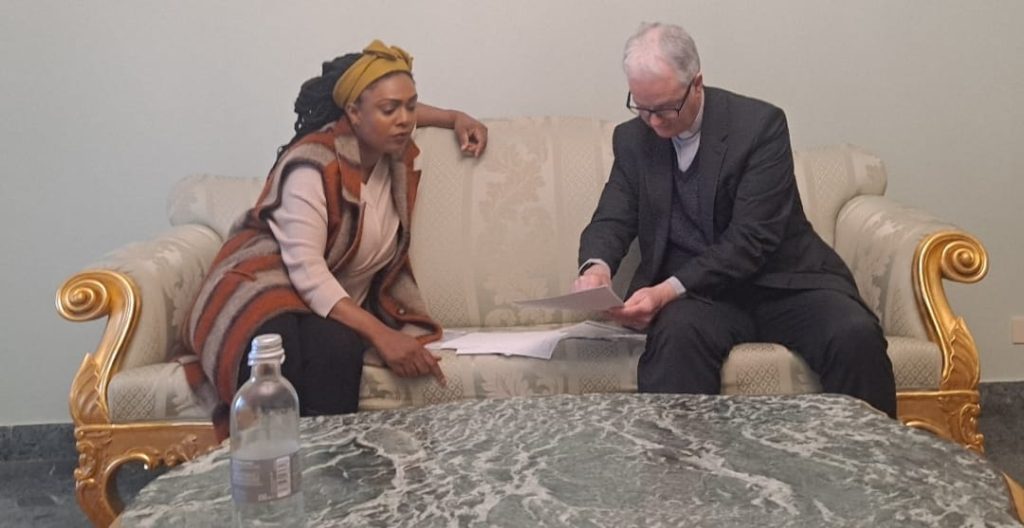

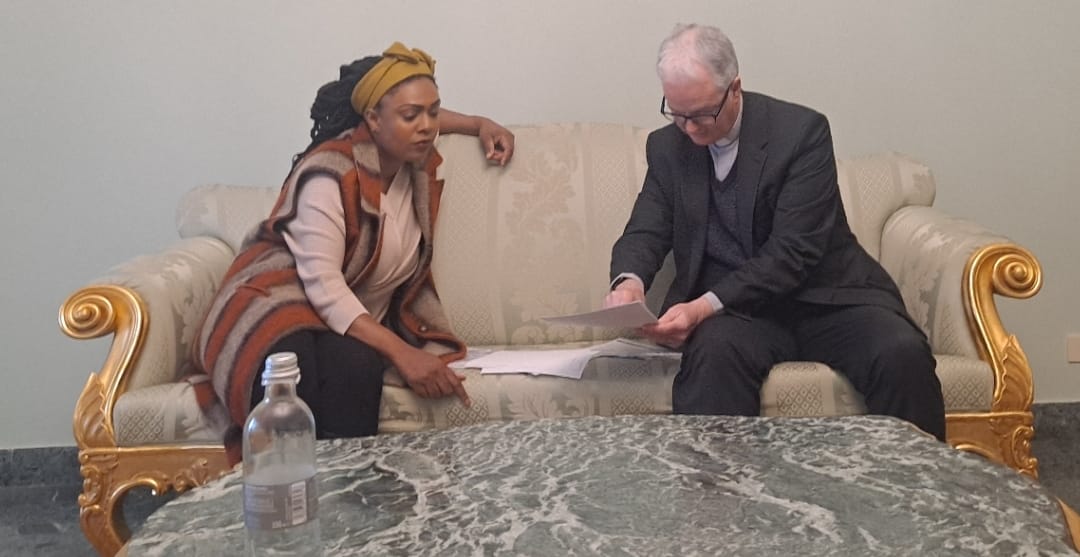
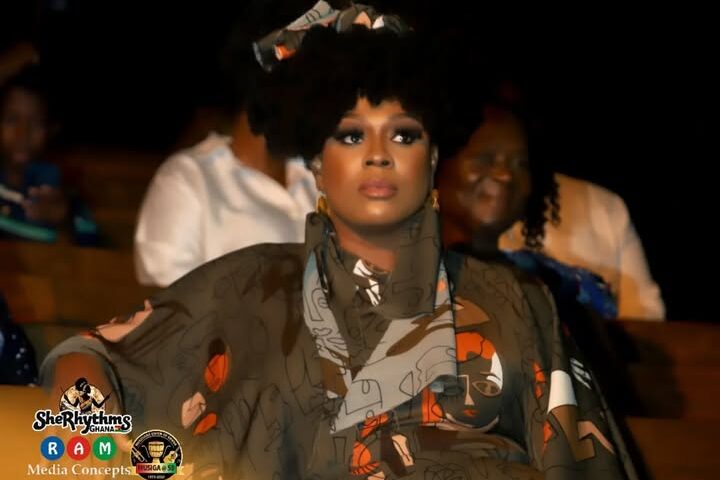
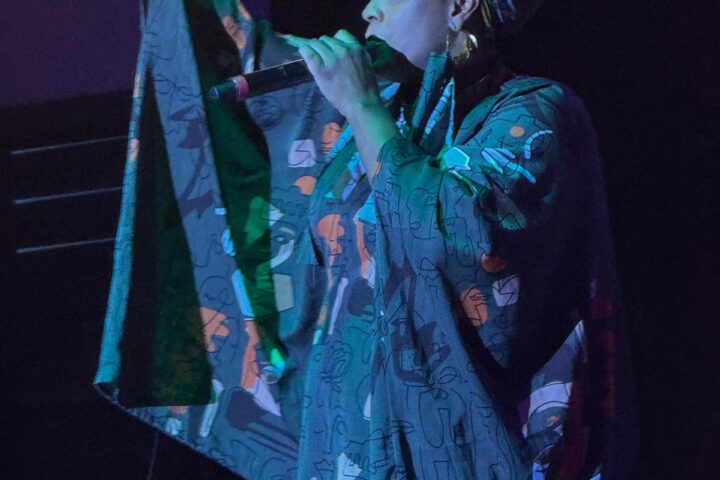
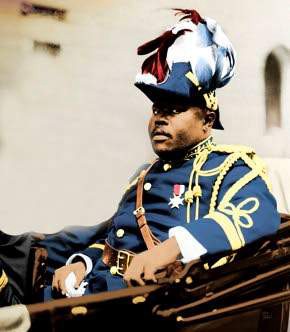
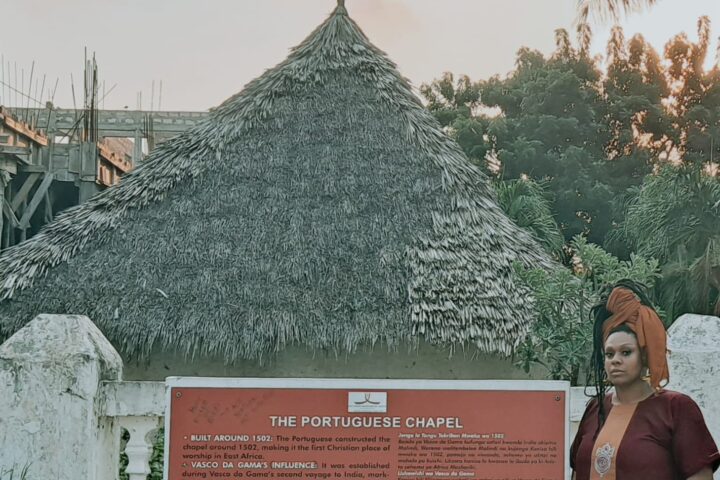
What a wonderful engagement Madam Kim Pool. Thank you for always keeping the Pan-African spirit alive and helping to restore our culture.
Go Africa, thanks for the tht
Kim, I look forward to reading and discussing during our time together in NY un March.